Idea by
Bernd Jaeger
Call for ideas 2017
Reprogram Retail
Reprogram Retail
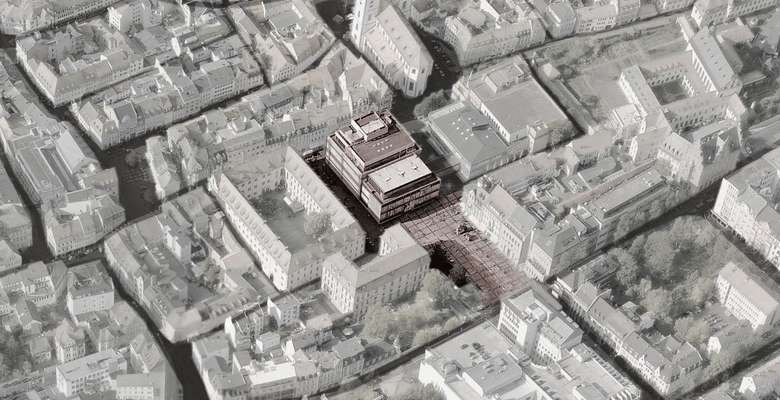
The Athens Charter introduced the concept of the functional city as a blueprint for many European cities. The retail sector has thereby significantly influenced the use of public space in the city centers and reduced it to a place of consumption.
At present we are detecting a crisis of retail, caused by the construction of shopping centers around the cities and by growing sales of online retailers. But if shopping can no longer be the motor for the activation of public space in the city centers, or leads to exclusion and segregation, then the motor must be replaced. Department stores have to be reprogrammed into new types of public buildings.
The Karstadt department store I show here was designed in 1961 by renowned German architect Sep Ruf and due to its urban setting and architectural qualities, the building plays a central role within the city. The building interrelates with the main public plaza of the city, which was also designed by Ruf, in a reciprocal and inextricable way.
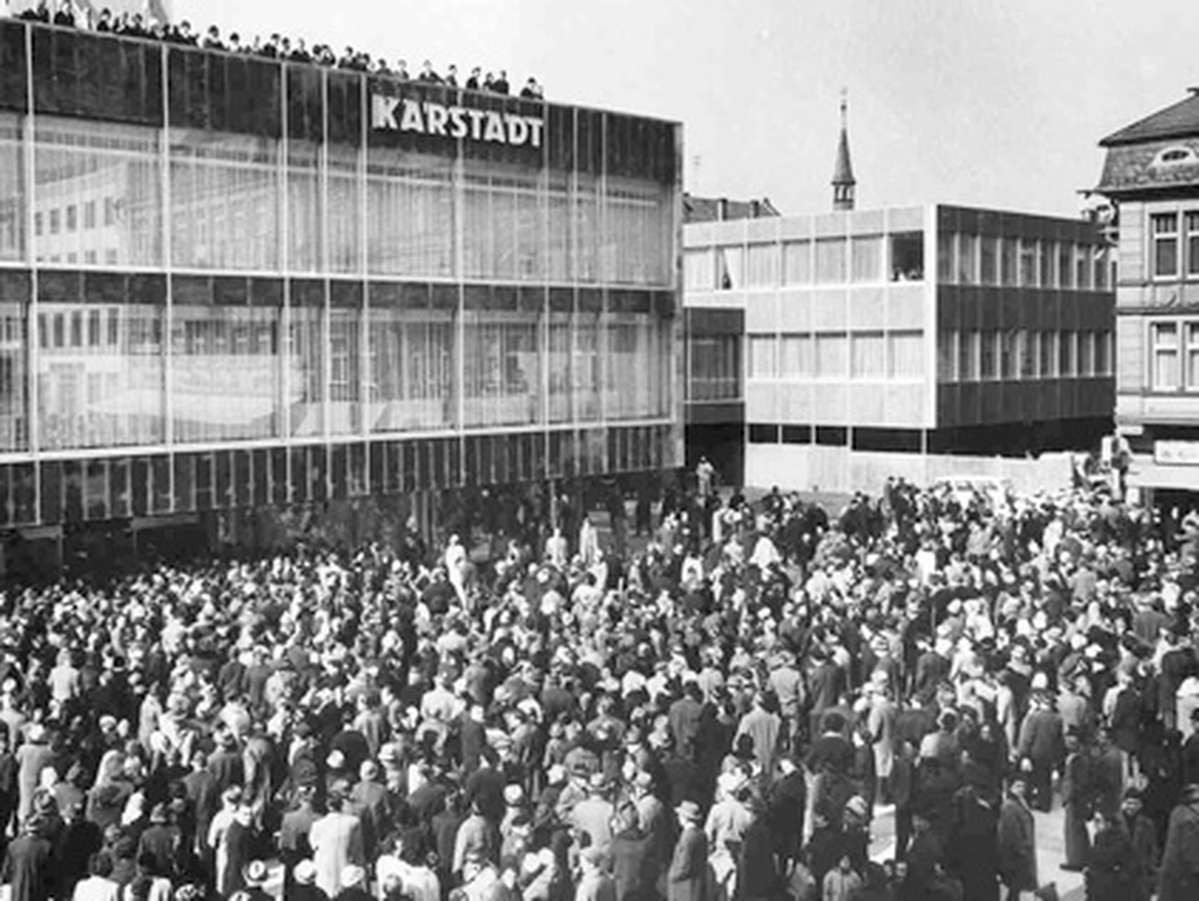
The crisis of the long-established company Karstadt (founded in 1881) with its formerly more than hundred department stores in Germany can be seen as a symbol of a shift. A solution for the Karstadt crisis is unforeseeable as the concept of department stores in general seems no longer appropriate.
However, the department stores themselves have an enormous importance for medium-sized cities and have played a big role in forming the identity of the public space within the city.
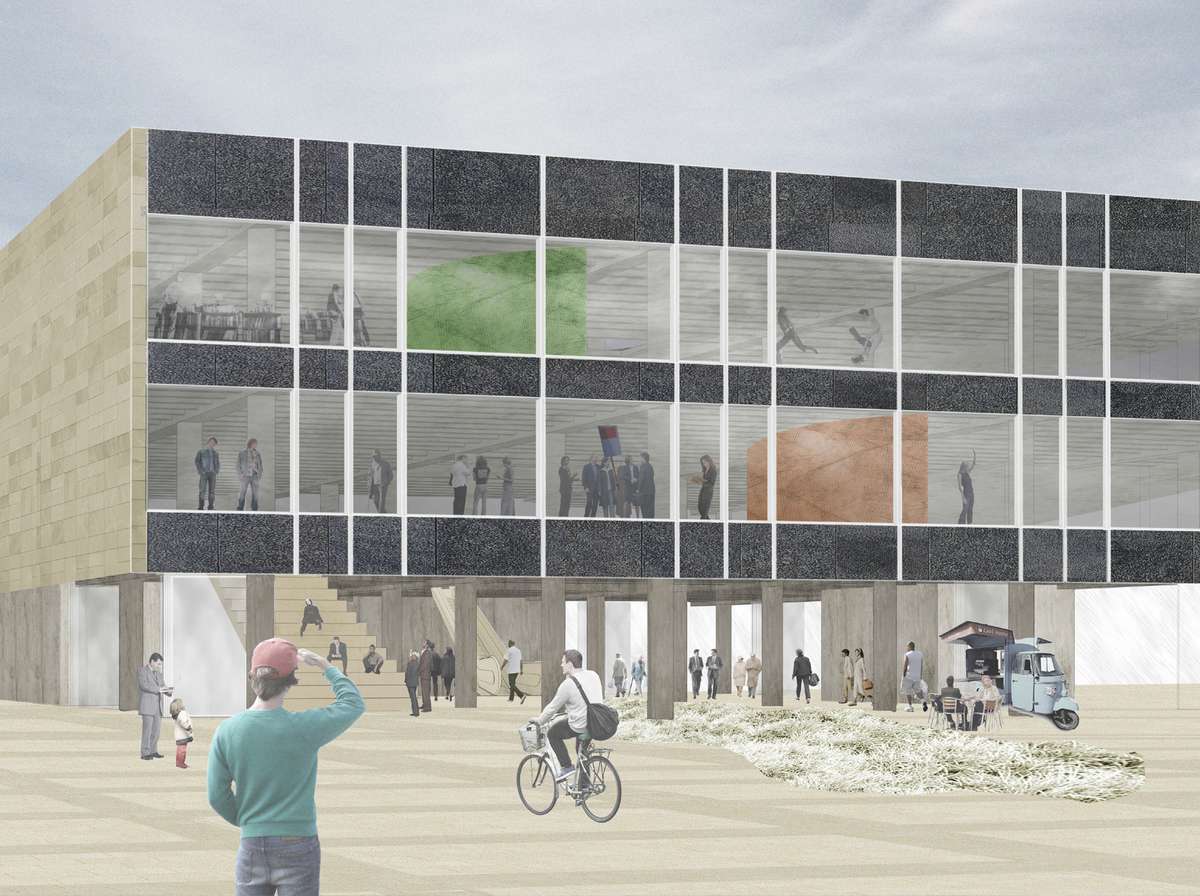
Department stores in city centers, which are floundering and do not function as a strengthening of the public by means of trading knowledge, will be reprogrammed and accessible to citizens all-day. The transformed department stores will extend the network of public spaces of the city with a public interior without any thresholds. It will unite all age groups, ethnic and social groups, each with different cultural backgrounds and life experiences, as a learning and knowledge-transferring public.
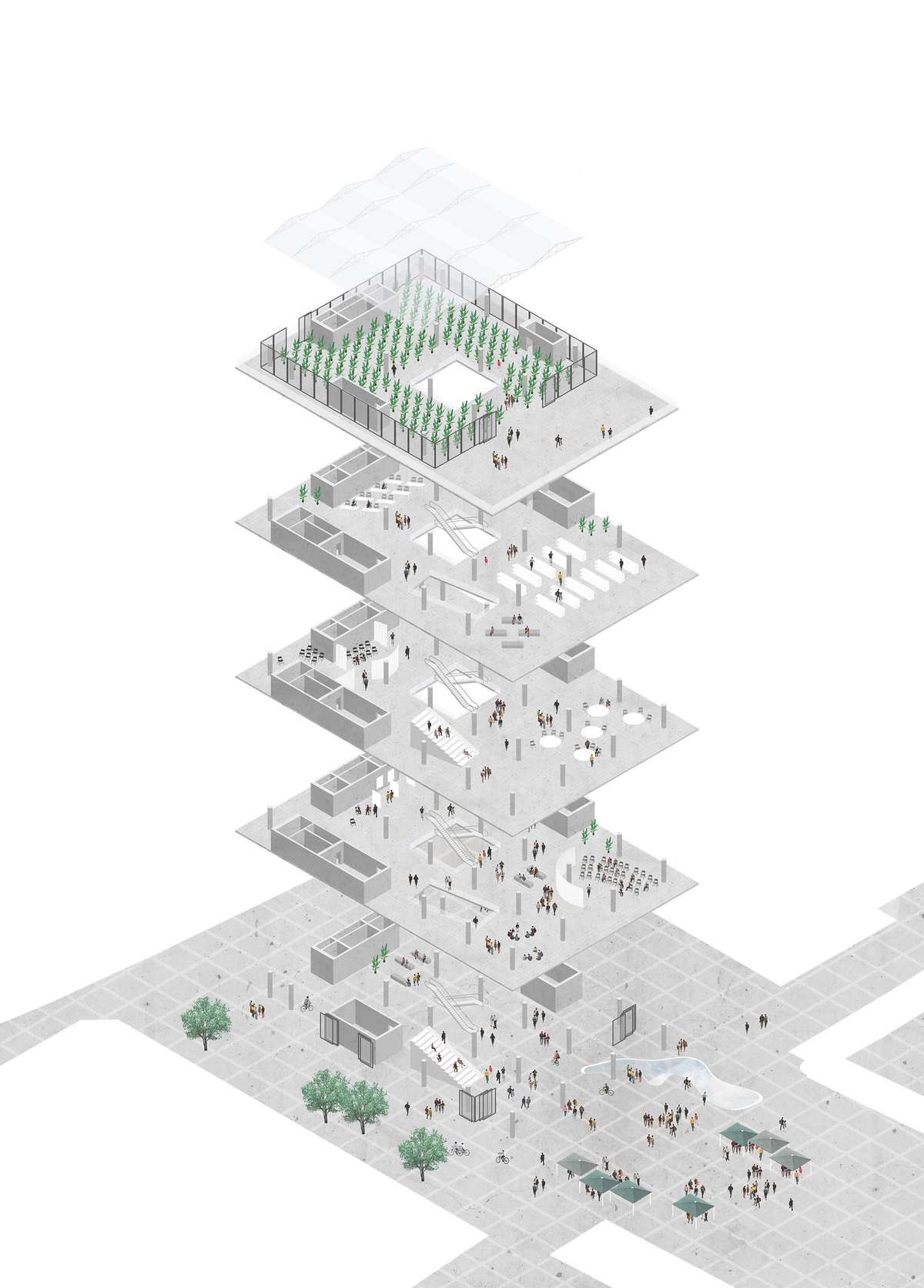
The building hosts programs for acquisition of knowledge, such as a library, space for talks, workshops and individual learning, but most of the space can be used flexibly for informal communication, spontaneous actions and encounters, enabled by the buildings generous spatial capacities. Certain life experience, individual skills and cultural knowledge that is bound to individuals, can imparted only by face-to-face communication and interaction. This requires an appropriate spatial environment.
Reprogram Retail
Reprogram Retail

The Athens Charter introduced the concept of the functional city as a blueprint for many European cities. The retail sector has thereby significantly influenced the use of public space in the city centers and reduced it to a place of consumption.
At present we are detecting a crisis of retail, caused by the construction of shopping centers around the cities and by growing sales of online retailers. But if shopping can no longer be the motor for the activation of public space in the city centers, or leads to exclusion and segregation, then the motor must be replaced. Department stores have to be reprogrammed into new types of public buildings.
The Karstadt department store I show here was designed in 1961 by renowned German architect Sep Ruf and due to its urban setting and architectural qualities, the building plays a central role within the city. The building interrelates with the main public plaza of the city, which was also designed by Ruf, in a reciprocal and inextricable way.
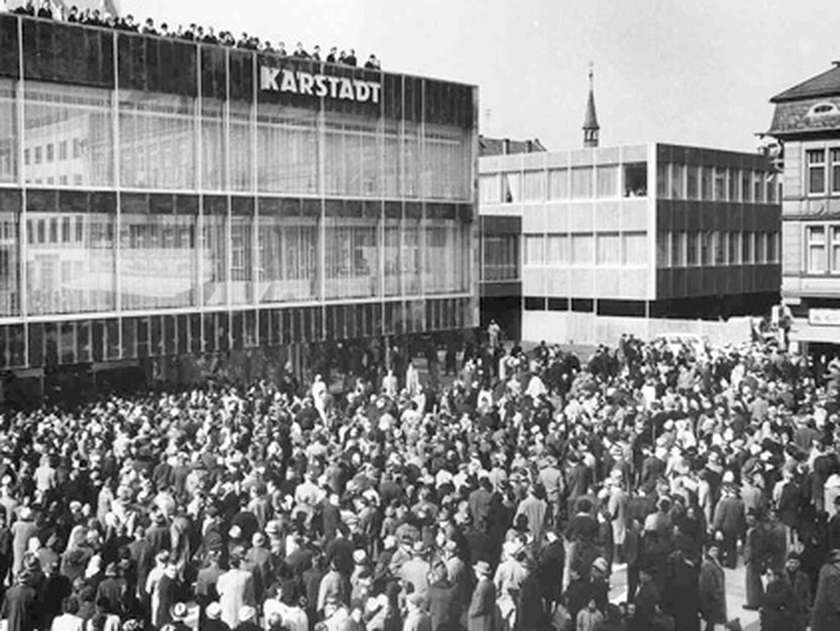
The crisis of the long-established company Karstadt (founded in 1881) with its formerly more than hundred department stores in Germany can be seen as a symbol of a shift. A solution for the Karstadt crisis is unforeseeable as the concept of department stores in general seems no longer appropriate.
However, the department stores themselves have an enormous importance for medium-sized cities and have played a big role in forming the identity of the public space within the city.
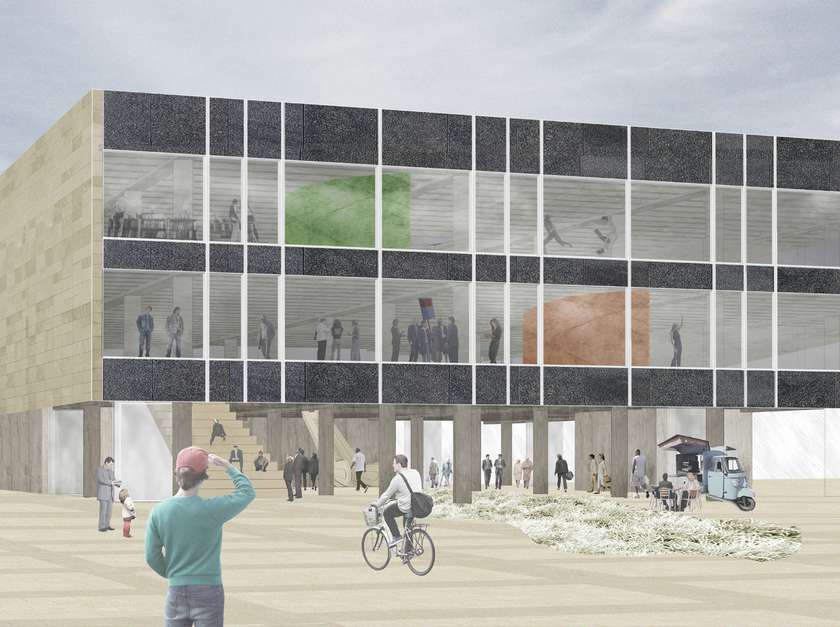
Department stores in city centers, which are floundering and do not function as a strengthening of the public by means of trading knowledge, will be reprogrammed and accessible to citizens all-day. The transformed department stores will extend the network of public spaces of the city with a public interior without any thresholds. It will unite all age groups, ethnic and social groups, each with different cultural backgrounds and life experiences, as a learning and knowledge-transferring public.
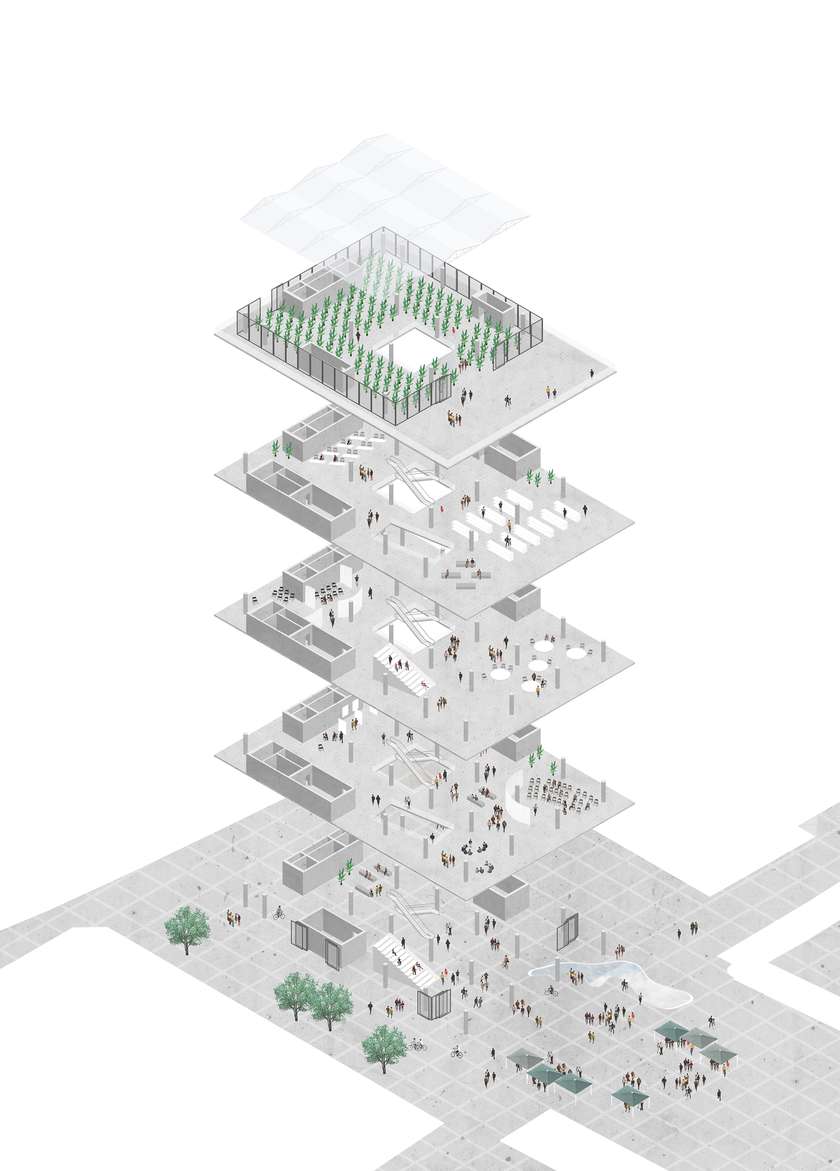
The building hosts programs for acquisition of knowledge, such as a library, space for talks, workshops and individual learning, but most of the space can be used flexibly for informal communication, spontaneous actions and encounters, enabled by the buildings generous spatial capacities. Certain life experience, individual skills and cultural knowledge that is bound to individuals, can imparted only by face-to-face communication and interaction. This requires an appropriate spatial environment.